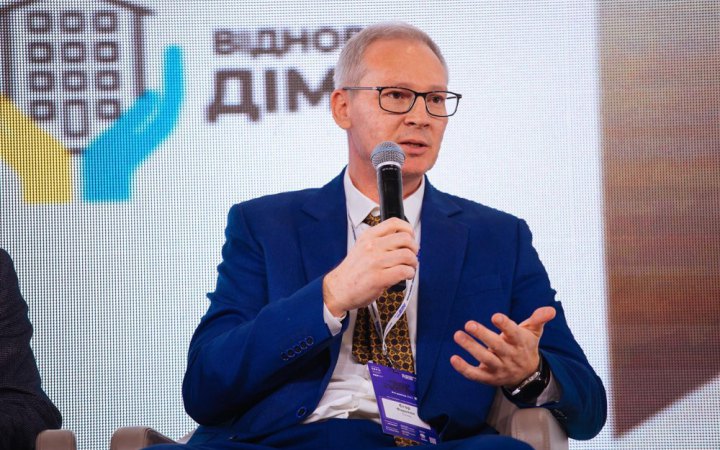The Restore HOME programme is one year old. How many homes of Ukrainians destroyed by Russia have been restored? What is the total amount?
Over the year of the programme's operation, we have received more than 325 applications for participation. This is 25,000 households. We already have 170 fully or partially completed projects. The Fund has compensated over UAH 245 million under the programme. The total cost of all submitted projects is UAH 650 million.
The Restore HOME has clear technical requirements for the condition of the houses. Therefore, not everyone can count on assistance. The programme involves houses that have "no damage to the mechanical stability of the supporting structures". What is this criterion and why was it introduced?
The programme allows for the replacement or repair of damaged windows, balconies, exterior doors, facades, roofs, roof boiler equipment or utility networks. What is the idea? To help people carry out priority repairs to prevent further destruction of structures, engineering systems of buildings, the impact of external temperature factors and precipitation.
If the mechanical stability of load-bearing structures has been damaged, this is a slightly different category of work. It involves a different budget, different requirements and procedures. If we restore, for example, one damaged entrance, if there is no entrance, we understand that we need completely different funds and completely different expertise. We decided to focus on helping people return to their homes area that are still usable. And this was done given the rather limited budget of our programme. We are also in talks with donors to expand the list of activities that can be carried out under the Restore HOME programme.
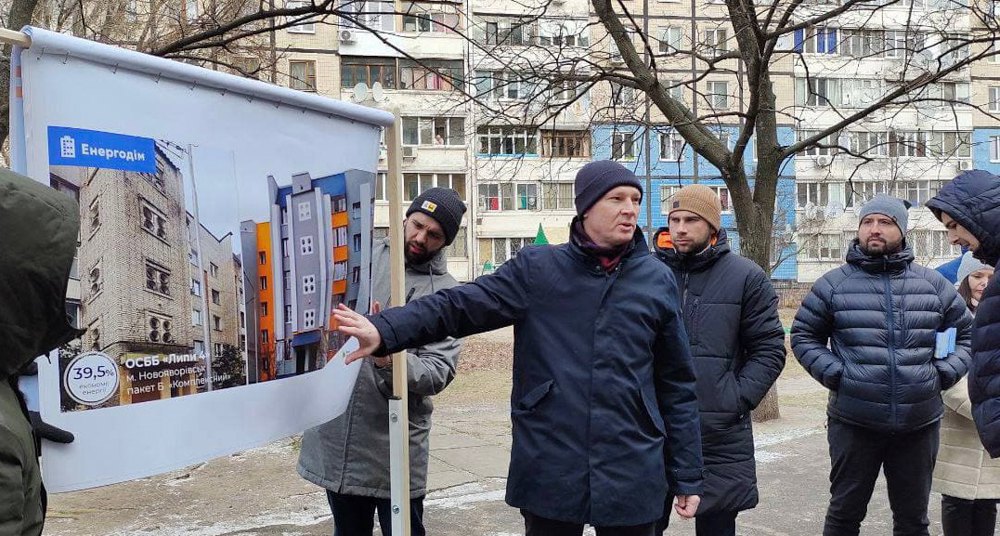
The maximum amount of a grant for house renovation is UAH 7.2 million. Do you plan to increase this amount next year?
Even this year. Because the programme will include repairs to common areas and barrier-free access. The maximum cost per house will be UAH 8 million. I hope that in the future the overall budget implementation will increase, and measures will be added, such as emergency works. This is a very important measure because many buildings have suffered damage to point structural elements. For example, reinforcement belts on roofs, walls or foundations. This also increases costs. And if donors agree to include this measure, we hope that next year these works will be added. Accordingly, the maximum grant amount per house will increase.
According to polls, Ukrainians are wary of corruption during the country's post-war recovery. How transparent is the selection of contractors and what are the safeguards against corruption?
The principles of transparency and freedom of choice for all contractors are laid down in the law in the Fund. We have no influence, it is always the choice of our beneficiaries - condominiums. We also have no accredited companies. The choice of contractors for both construction and installation works and other services is the prerogative of the condominiums.
To help condominiums work with contractors, the Fund has established requirements for contractors. They must have experience in performing similar work: facade insulation, window replacement, roof repair. And a clean reputational history. There should be no open criminal proceedings, no links with collaborators, etc.
Since we understand that condominiums are not a customer who constantly deals with the construction market, so they may not be aware of the prices of products and activities, we have set unit costs for all the main ones. These include repair of facades, roofs, replacement of windows, double-glazed windows, balcony blocks and external doors. We commissioned an independent cost estimate from a third-party design organisation. They were expertly assessed by Kyiv Scientific Research Institute of Forensic Expertise, an extremely reputable organisation. As a rule, all condominiums try to fit into these unit costs.
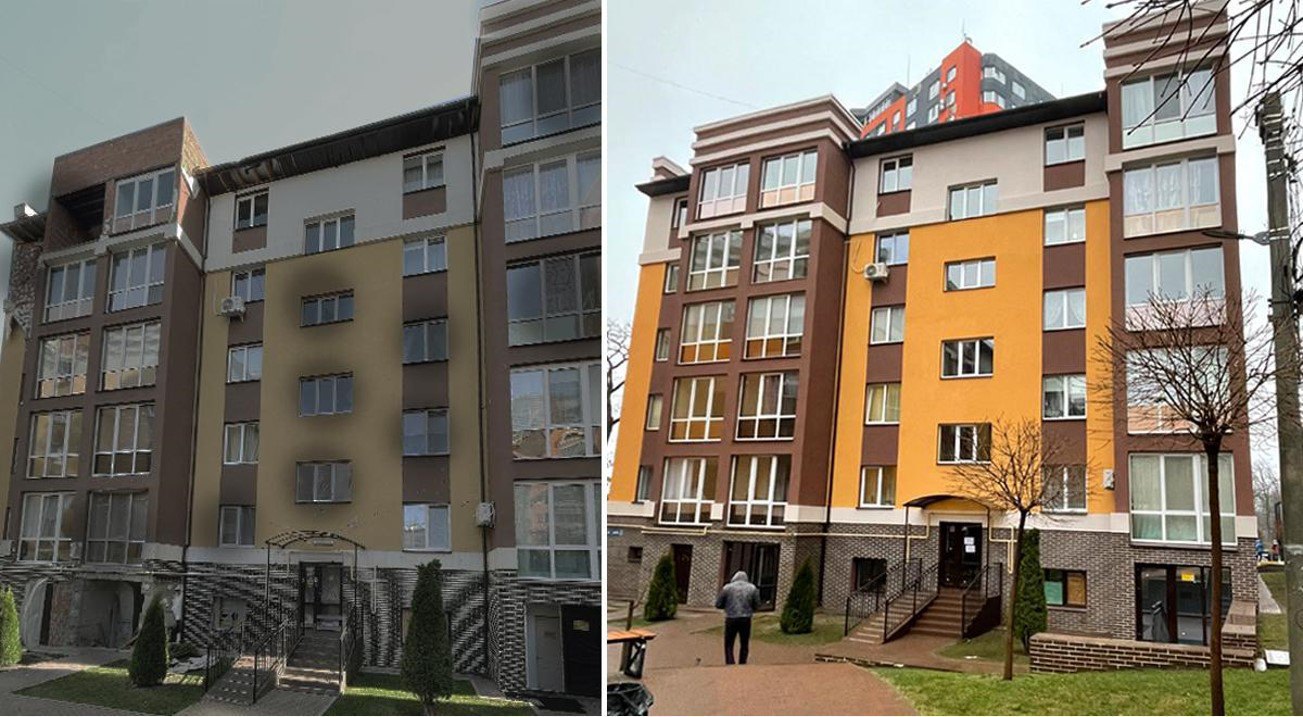
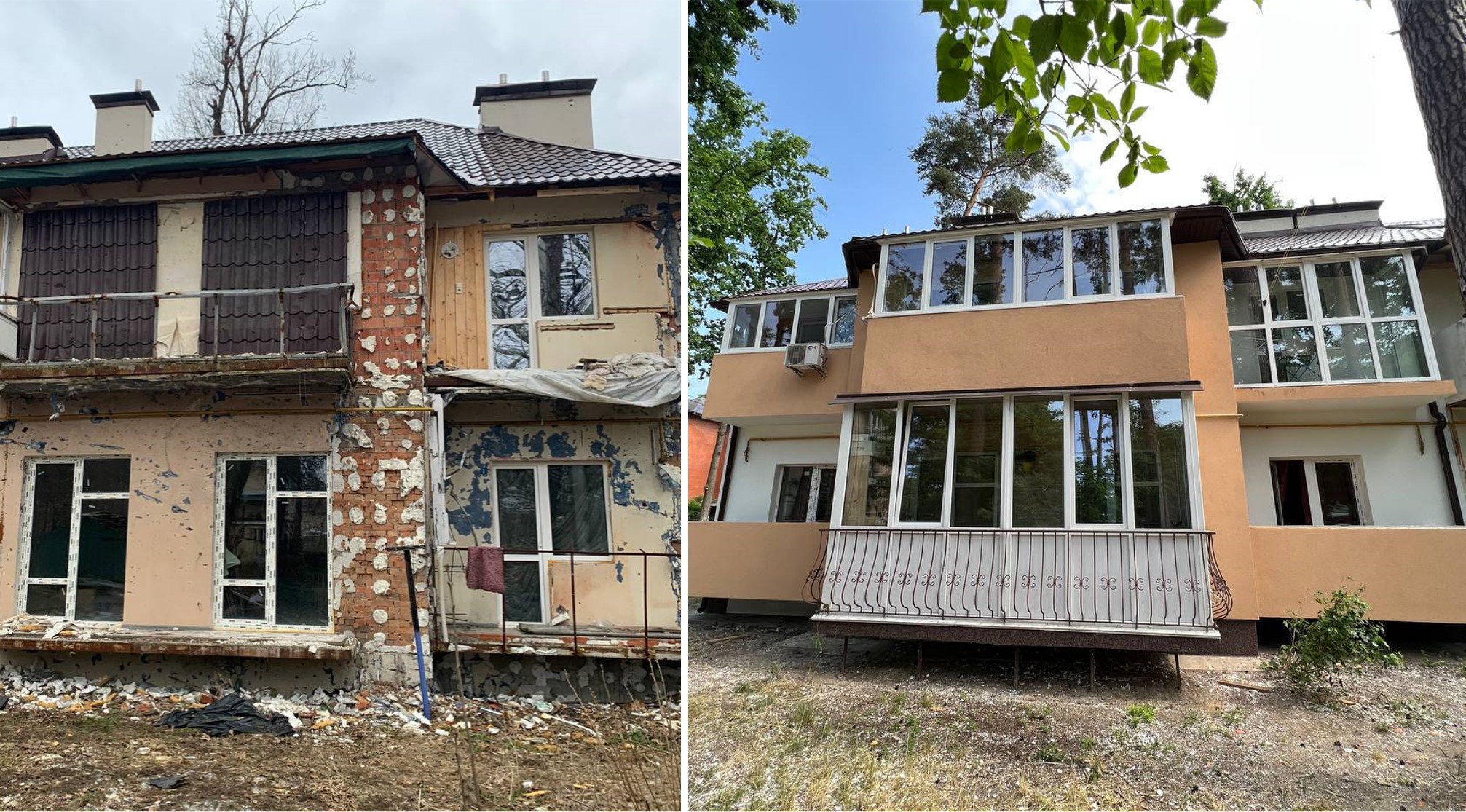
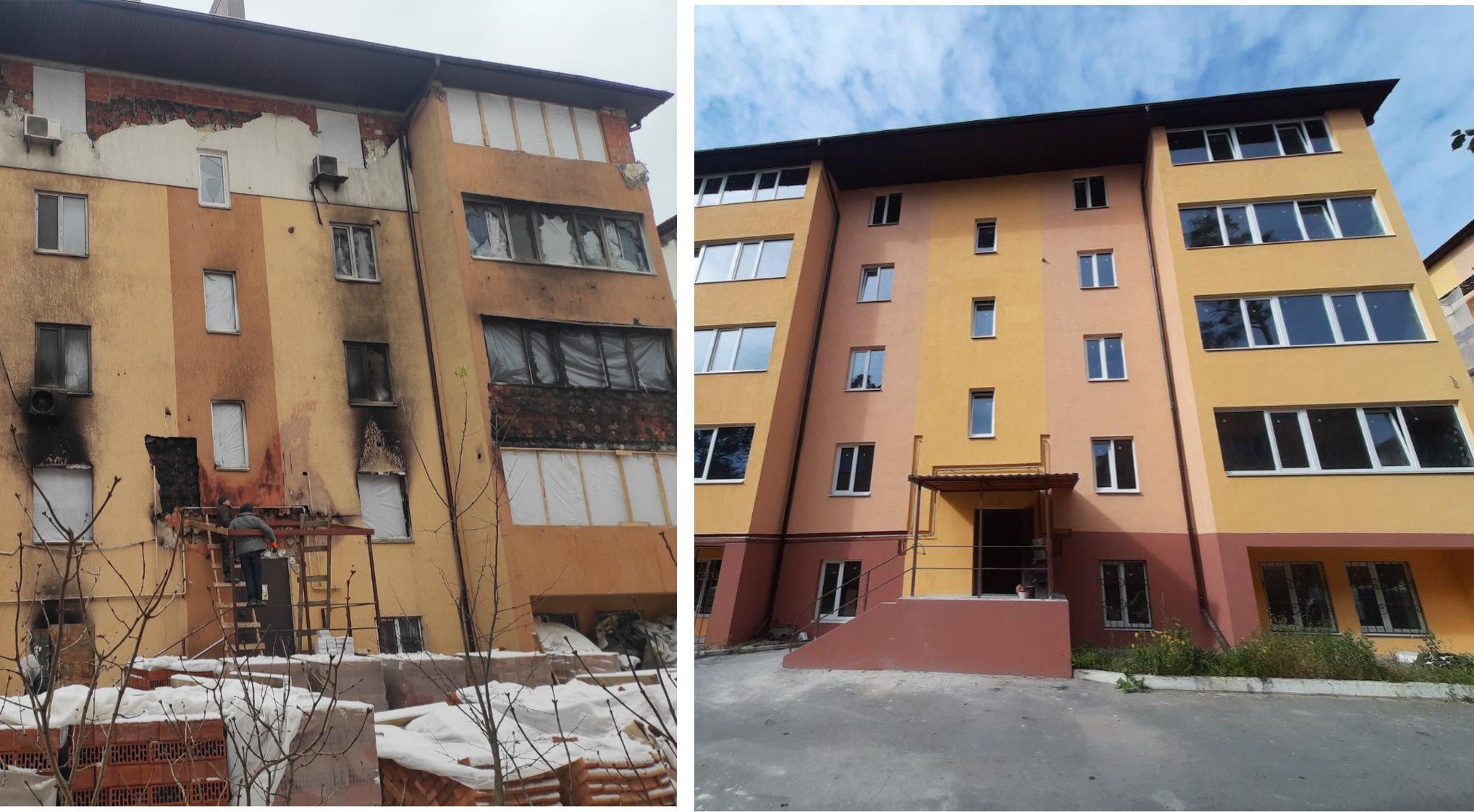
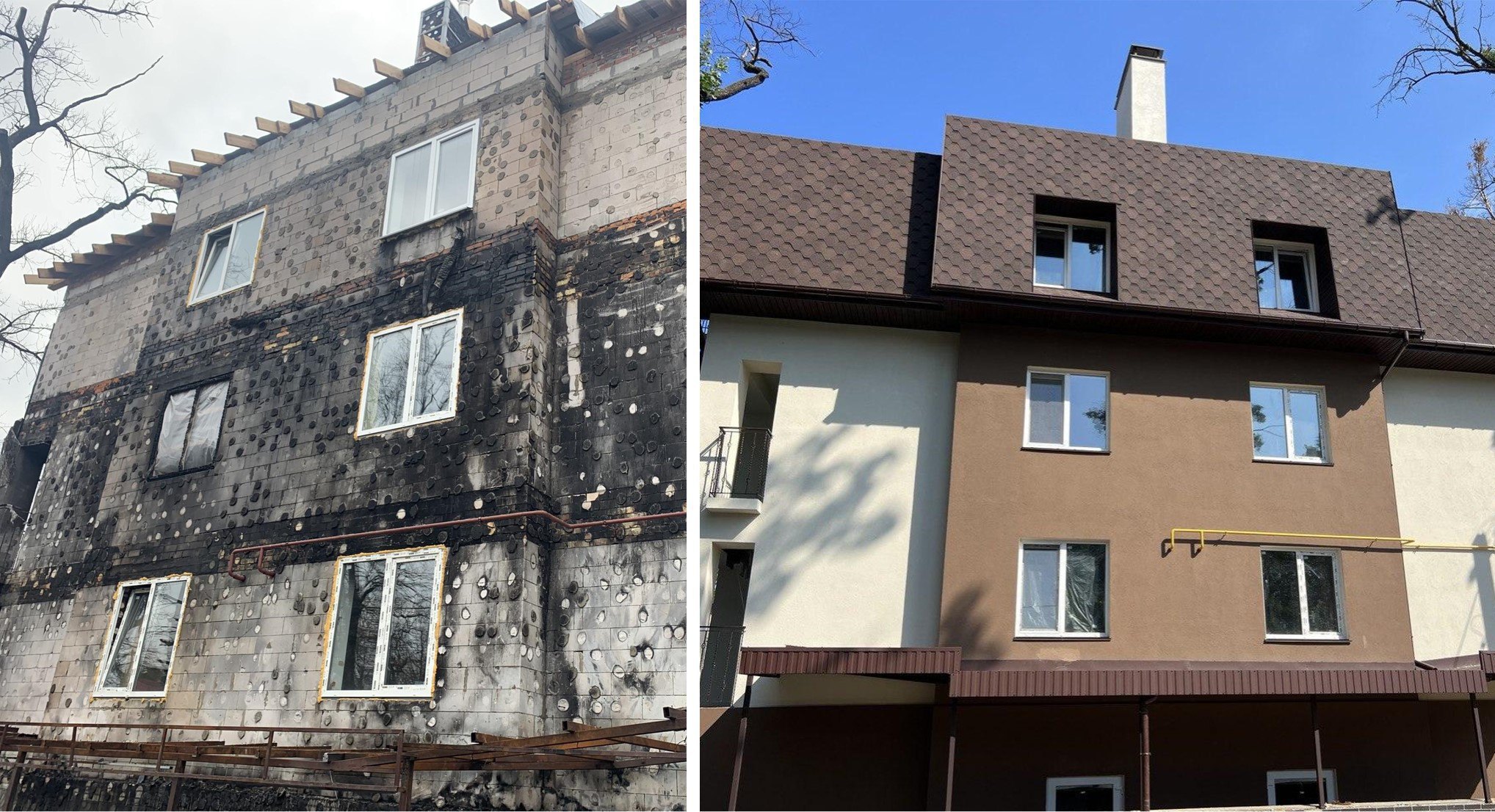
At the same time, we know that there is a shortage of labour in the construction market, so salaries in this sector have increased significantly. A lot of installers and builders serve in the Armed Forces of Ukraine. Specialists earn up to a 1,000 euros a month. Whereas the Ministry of Infrastructure or at the regional level have provided for a salary of 15,000 to 18,000 hryvnias per month. It is clear that such prices can be found in the regions, but in the Kyiv Region, for example, it is virtually impossible. This is a problem that needs to be addressed at the state level.
Coming back to anti-corruption safeguards: we clearly document what has been damaged and what we then restore. The application goes through this analysis. And as the last safeguard, I can say that we have a four-eyes rule: double-check verification. First, the Foundation's specialists check, then donor representatives.
A number of cities are implementing their own programmes to restore damaged housing. Foreign donors and organisations also have such projects. Does it make sense for the Energy Efficiency Fund to also take on reconstruction?
Since 2022, the Energy Efficiency Fund has been transformed into the Energy Efficiency and Recovery Fund. In Ukraine, hundreds of thousands of homes have been damaged or destroyed, leaving thousands of people homeless and often hopelessly looking for help. How much money do we need to invest to rebuild all these homes? Nobody knows for sure. About six months ago, I saw an estimate by the World Bank that said we needed to invest $250 billion. And this is on the basis of "doing better than before". The Energy Efficiency Fund is based on these principles. It's not enough to just patch things up. We need to think about energy efficiency. About new security. About the new quality of the environment.
The Restore HOME programme is actually the Foundation's response to the challenges of war. With long-term partnerships with the EU, our team launched the programme as quickly as possible to help people return to their homes. The statistics of the programme, even in comparison with other programmes, shows that people need it, and the demand for participation is growing, although this is the case when we want to have as few clients as possible, but unfortunately, the enemy does not stop shelling towns and villages.
To be honest, it is Russia's responsibility to restore everything, but we cannot just sit and wait. Today, it is more important than ever to act together. If we wait and do nothing, there will be even more destruction. And we need to live now. We need to work. People are not to blame for their misfortune. And they are not ready to sit and wait. They are active, unite in condominiums, and do everything in their power. And we are helping them. That's why our answer is yes, the Energy Efficiency Fund sees the point in restoring houses.
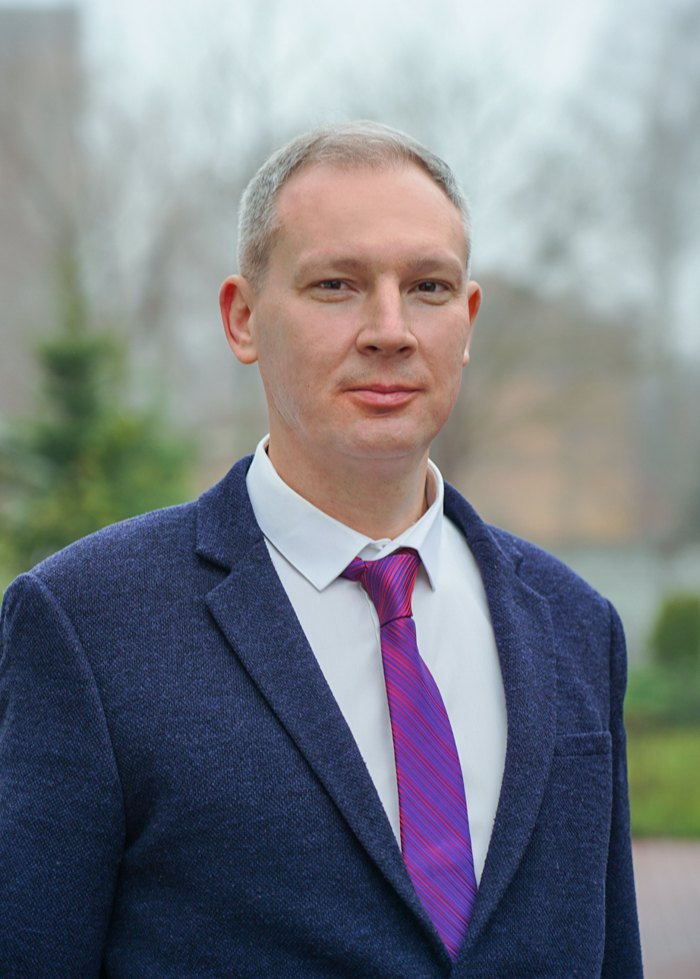
The Restore HOME programme is fully funded by the European Union. However, our partners have been hinting for several months that the government should also participate financially. What share are we talking about and have these funds been allocated in the state budget for 2024?
The pilot phase of the programme was 100% funded by the European Union. Now we have moved on to the main stage of implementation, where the co-financing mechanism is already in place: 20% are funds from the Ukrainian side. This is the money that the Fund has released from its authorised capital reserves. We hope that in 2024, the situation in the country will stabilise a bit, there will be appropriate changes to the state budget and the authorised capital of the Fund will be replenished.
So the budget for next year does not include money for the Energy Efficiency Fund?
The state budget does not provide for funds for the Fund. But the programmes will continue. I think we will return to budget negotiations after the first quarter of 2024.
More than 140,000 homes have already been damaged. This is the data of the Cabinet of Ministers. It will take years to rebuild them. How many homes does the Fund plan to restore next year? Do you have such calculations?
We have preliminary calculations. This year we will fully or partially restore about 220 houses. However, we have already approved more applications, which will be transferred to the next year. I think that in total, at least 400 houses can be restored with the available funds, which is 30 million euros. We used to calculate three million per house. However, we see a downward trend. In Zaporizhzhya, Kharkiv, Kharkiv and Mykolayiv Regions, most of the damage is to roofs and windows, so now the average cost of a project is not two or three million, but a little less - 1.7. So we plan to restore at least 600 houses under this programme, but the number can fluctuate in either direction, depending on the extent of damage and the size of the houses.
I thought that HCOs usually ask for the maximum possible amount at once - 7.2 million.
We have safeguards: photographic documentation and expert opinions. That's why we see that Housing cooperatives (HCOs) are more careful when working with projects and estimates. HCOs that request the maximum grant amount are 10% of the total amount.
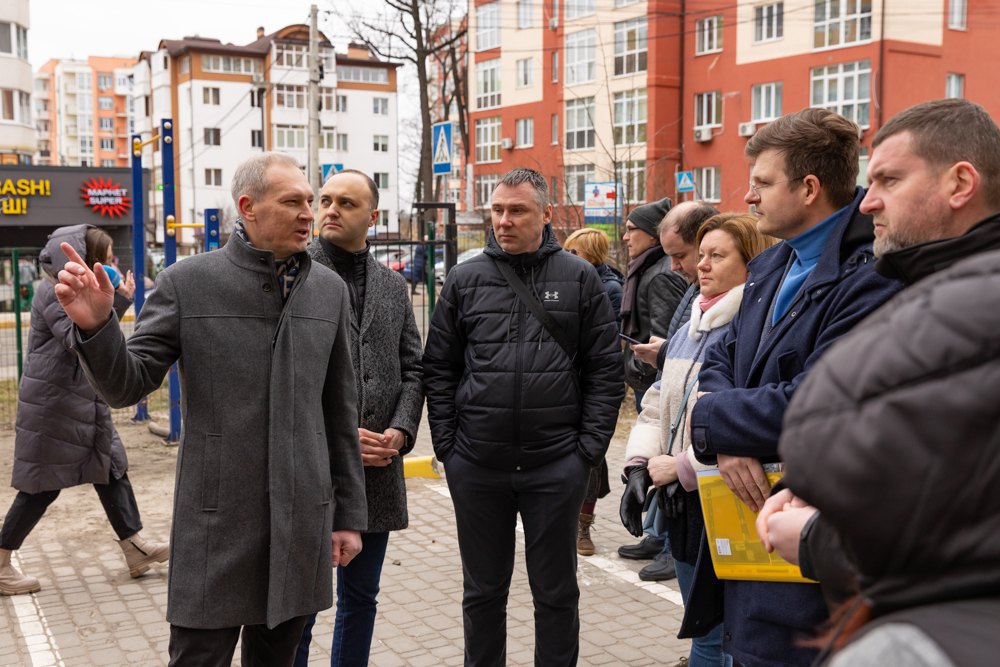
Has the Fund restarted the Energodom programme? Prior to the full-scale invasion, HCOs could receive up to 70% of the funds for house insulation or an individual heating point.
We have never stopped the Energodom programme, but since 24 February we have not been accepting new applications for participation. Unfortunately, today we cannot accept applications for the comprehensive package B, where the compensation from the Fund reaches 70% for the first 500 applications from HCOs. However, we have redistributed funds and are accepting applications for the simplified package A, which finances the installation or replacement of an individual heating point, a commercial metering unit, thermal insulation of pipelines and replacement of windows and balcony doors in common areas and replacement of external doors. The total amount of the grant for this package can be two million hryvnias, with a 40% compensation rate. At the same time, we have halved the HCOs' own contribution. This allows us to attract other assistance, for example, from local communities.
We have a new partner bank. It provides unsecured loans to HCOs at 16% per year.
Is it correct that the main innovation of this year's programme is that HCOs can now receive money in advance?
This rule applies to those HCOs that are already participants in the programme, have applied and are implementing a project. They have a problem, but how do they pay for the work? They can receive an advance payment. That is, they can apply for an advance and receive up to 30% of the funds in advance, until the work is completed or further stages are completed.
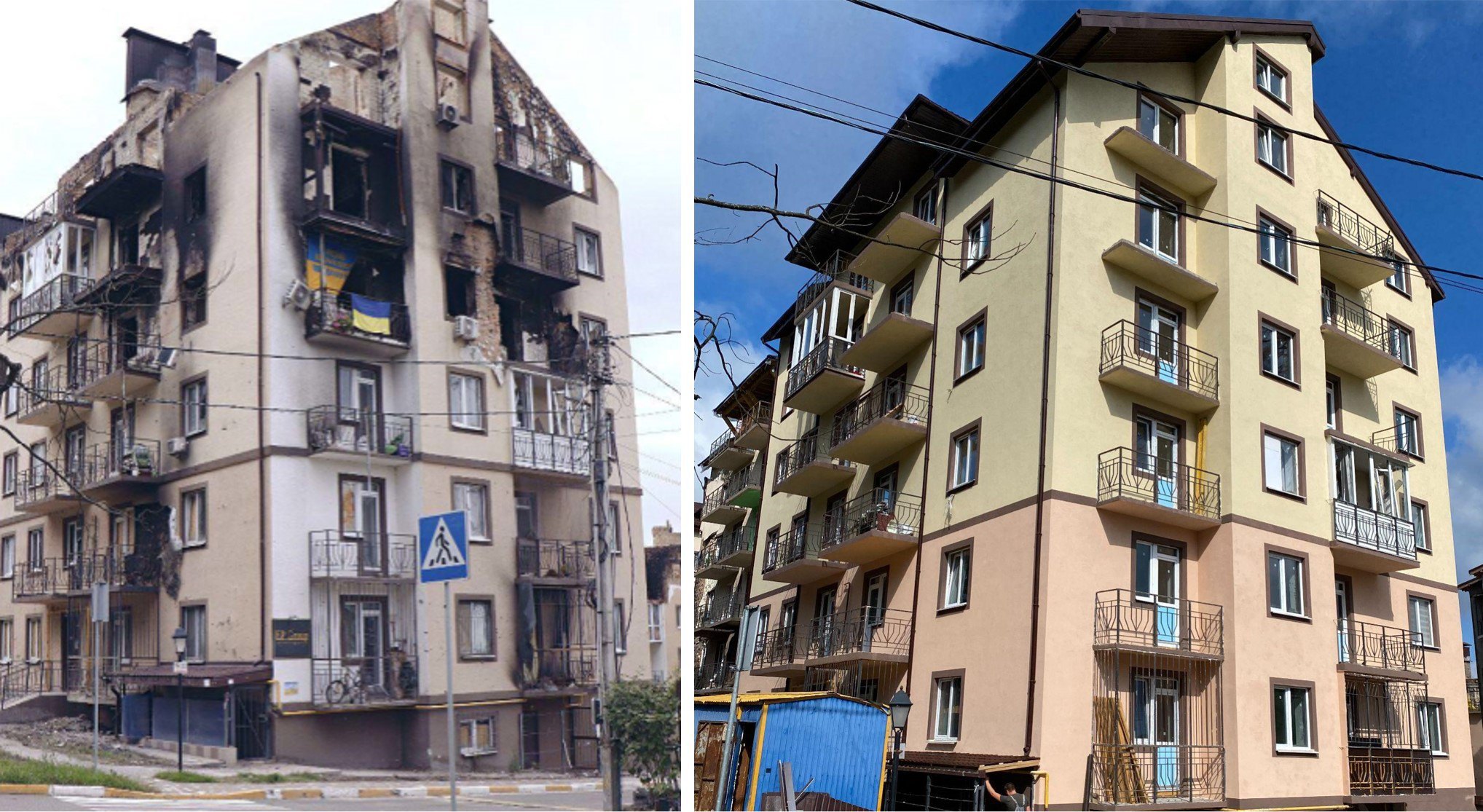
Let me clarify about loans: so far, only one bank has been working with HCOs?
Yes, but we are already receiving applications from other partner banks. I think that soon they will also open loans for HCOs. This creates some competition, and the interest rate will be reduced.
Before the full-scale invasion, were the conditions from banks better?
There is a positive trend in the rate. It is already 16%. It is likely to go down to 12%. I think we can return to the lending conditions that were in place in the pre-war period - 12%.
Only HCOs can apply for the Fund's programmes, but not all residents have managed to unite or register their organisation. Is this process complicated during the war? For example, it is not always possible to hold a meeting of residents because some of them are either in other regions or abroad.
We believe that it has become better, because since 10 November 2023, Law 3270 has been in force, which amended some laws of Ukraine to simplify the management of apartment buildings. First, notifications of meetings can be sent by email. Also, importantly, it is now possible for co-owners to participate in meetings remotely, via video conference. This is one of the features of this law. The law also allows for electronic signatures to be attached to documents. This means that even abroad, you can fill in a survey sheet and sign it with an electronic signature. This greatly simplifies the process.
In addition, in Regions that were temporarily occupied or where military operations took place, HCOs can even join a particular programme by a board decision.









